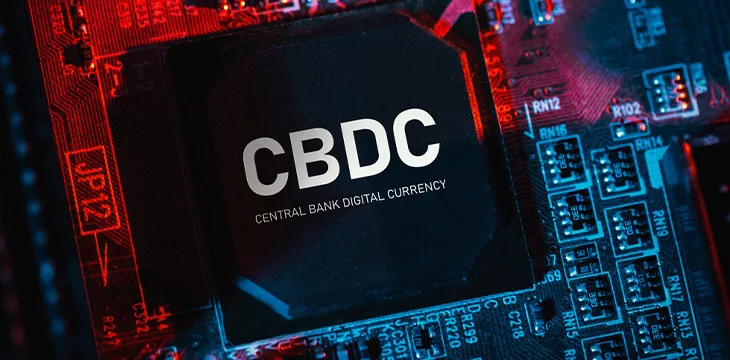|
Getting your Trinity Audio player ready...
|
Brazil Central Bank President Roberto Campos Neto recently made comments covering various subjects related to central bank digital currencies (CBDCs), Brazil’s new payment system (PIX), and the problem of balancing open networks and privacy.
On CBDCs, Campos Neto said Brazil’s digital real, known as the Drex, is “just a token, issued out of a deposit.” He said doing things this way is cheaper and easier, that existing regulations already cover deposits, and that it will make banks much more efficient. He also sees potential for the Drex to dramatically simplify some types of transactions, such as international real estate purchases.
More generally, the central bank boss said CBDCs could solve the same problem a common global currency would without actually needing to create one. “If every country has a digital currency, and we are able to connect those currencies digitally, in a fast and secure way, you actually have achieved the goal of having a common currency without actually having to sacrifice your monetary policy,” he said.
Campos Neto also spoke about Brazil’s new payment system, known as PIX, which is instant and almost free. It’s already the most popular payment system in the country and had a day this month when it processed 170 million transactions.
However, amidst all this optimism and progress, the central banker said one problem still hadn’t been solved: bridging the balance between open networks and privacy. He noted that central banks use hybrid systems that are DLT inside and centralized/controlled outside.
So the question is, how can you have a DLT platform so that you have the benefit of the nodes producing the registration and the contract without affecting the privacy issue? So this is the most challenging part. Nobody has solved this problem yet. I think we are very close to doing so. – Roberto Campos Neto, Brazil Central Bank President.
BSV blockchain solves all of these problems and more
The vision Campos Neto painted in his recent comments is an exciting one: citizens in every country making instant, nearly free payments, and national currencies being exchanged seamlessly on a global digital ledger that reduces friction, speeds up payments, and makes everything more efficient.
However, the central banker admits that there are still some problems to be solved in the current systems, such as balancing open networks and privacy. What he perhaps doesn’t know is that Satoshi Nakamoto solved this issue when he released Bitcoin over a decade ago.
On the original Bitcoin protocol, users can protect their privacy (pseudonymity, not anonymity) by keeping their public keys private or by changing them frequently while open, interoperable systems can connect with each other, sending payments and communicating directly peer-to-peer.
Of course, being designed to comply with financial regulations, Bitcoin does not offer full anonymity, so authorities can still stop illegal activity such as by freezing coins and attempting to link rogue addresses to real-world identities.
Thanks to tokenization, CBDCs can run on the Bitcoin (BSV) network, allowing for instant atomic swaps between them in just the manner Campos Neto envisions.
With the ability to process 100,000 transactions per second for fractions of a cent and developments nearing completion that will allow one million transactions per second sustained, the BSV blockchain is the ideal system to bring CBDCs at scale while mitigating many privacy concerns some have.
Only on the original Bitcoin will the balance between privacy and open networks working interoperably be met. When the world figures this out, the problems addressed by Brazil’s central bank chief will be solved, and the global, open, yet private network he envisions will become a reality.
To learn more about central bank digital currencies and some of the design decisions that need to be considered when creating and launching it, read nChain’s CBDC playbook.
Watch: How CBDCs on Bitcoin should work
Recommended for you
British lawmakers of the parliamentary national security committee have called for a temporary ban on political parties receiving donations in
Circle (NASDAQ: CRCL) soared in 2025 thanks to U.S. ‘regulatory clarity,’ but can this momentum survive a ban on crypto

 02-26-2026
02-26-2026 




